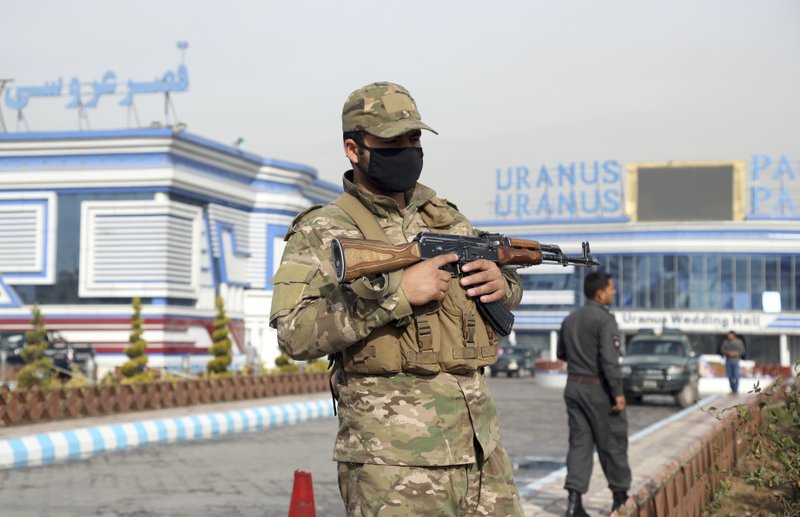KABUL, Afghanistan -- A lack of coordinated oversight of America's spending in Afghanistan has led to a waste of funds and hampered training and development of the country's security forces, according to a watchdog group that monitors billions of dollars in U.S. aid to the country.
The U.S. has so far spent more than $84 billion dollars on Afghan forces over the past 17 years, but those forces continue to suffer staggering losses and bleed personnel. Soldiers go home on leave and never return.
The report from Washington's Special Inspector General for Afghan Reconstruction released late Thursday painted a picture of a costly Afghan security development scheme, with multiple supervising U.S. and NATO departments that don't coordinate with one another.
The report said the "security sector assistance mission in Afghanistan lacked an enduring and comprehensive plan" from the start.
It also was critical of the U.S.' seeming reluctance to involve Afghans in key decisions before implementing systems and constructing military facilities. The report quoted a former member of the U.S. team, tasked with advising and training Afghanistan's security institutions, as saying: "The Afghans were informed and directed, not asked or consulted."
Previously, The Associated Press reported that Afghan military commanders in southern Helmand province complained that their U.S. advisers ignored their guidance. In one example, the U.S. ignored requests to scale back a military facility that required three generators to power. The advice was ignored and the facility is often in the dark because of a lack of fuel to fire up the generators.
The inspector general report pointed out the folly of ignoring Washington's Afghan partners, saying "the United States has implemented systems that the Afghans will not be able to maintain without U.S. support."
The U.S. has already spent nearly a trillion dollars during its 18-year engagement in Afghanistan, yet the Taliban control or wield significant influence in nearly half of the country, carrying out increasingly frequent and deadly attacks against Afghan security personnel. As a result, the Afghan and U.S. governments have declared military casualty figures confidential. However, it is estimated that hundreds die each week, even as Washington holds talks with insurgents to find a negotiated exit to the lengthy war, America's longest-running conflict.
In recent days, Washington's special envoy Zalmay Khalilzad has been in the Afghan capital, Kabul, holding dozens of meetings with President Ashraf Ghani, as well as his political opponents and a broad swath of civil society, which has promised to safeguard the rights of women, the press and the rule of law in a post-war Afghan administration that includes the Taliban.
It wasn't clear when Khalilzad would meet again with the Taliban. In a tweet earlier this week he said: "It is important to remember we seek a comprehensive agreement, not a withdrawal agreement."
Still, U.S. President Donald Trump has often and publicly expressed his exasperation with America's continued involvement in Afghanistan as well as a desire to bring home the 14,000 U.S. service personnel still serving in Afghanistan.
Khalilzad has been pressing for Afghan-to-Afghan talks between the Afghan government, the opposition and the Taliban. An earlier attempt was scuttled after neither side could agree on participants.
The Taliban have refused to sit with government representatives but say they will sit with any Afghan, even a government official, as an ordinary Afghan and not as a government representative.
In yet another attempt to push the Afghan-to-Afghan talks, a meeting was scheduled for today in Pakistan between several Afghan personalities, including Gulbuddin Hekmatyar, who struck a peace deal with Ghani's government and was taken off a U.S. terrorist list. The peace agreement was touted as a blueprint for an agreement with the Taliban, who dismissed Hekmatyar as a spent force with no military might.
There will be no representatives of the Taliban at today's meeting.
A Section on 06/22/2019
